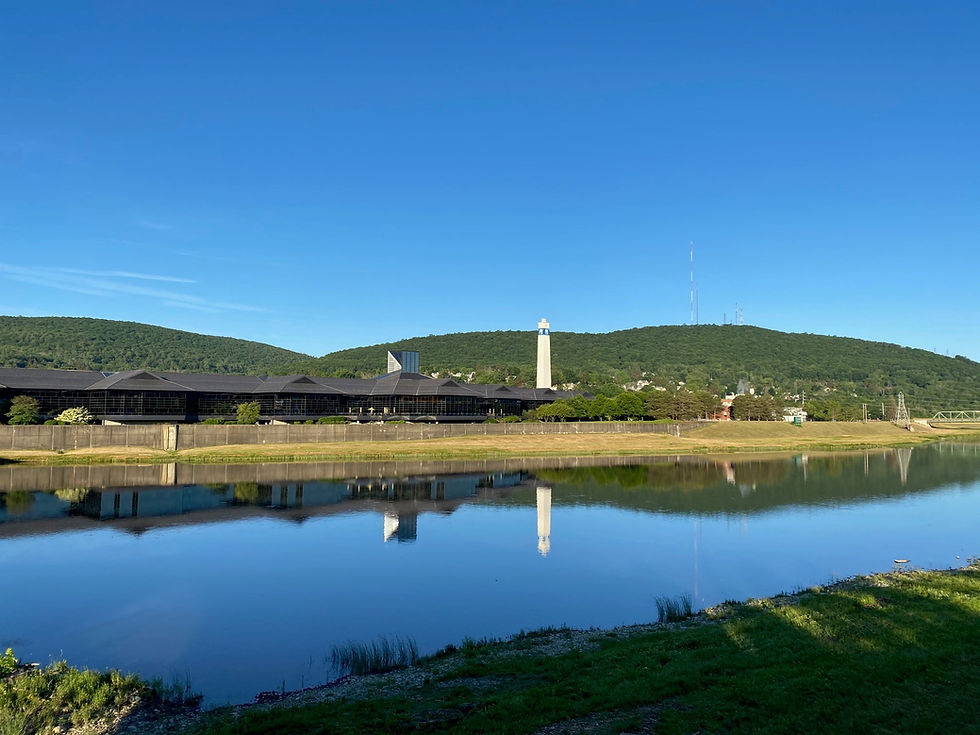"Well, I could be wrong, but I believe diversity is an old, old wooden ship that was used during the Civil War era."
-Ron Burgundy
Anchorman
This morning as I was scrolling through emails at 4 a.m., back to my pattern of insomnia and obsessing over work, I came across an ad for continuing legal education from the ABA, which included this caveat:
*Florida Bar regulators have stated that attorneys will not receive Florida credit for this ABA program, even if they self-apply.
Lawyers, like most professionals, are required to meet certain continuing education standards to remain licensed. My cycle comes around in November, and I'm about halfway through the slog of podcasts and Zoom videos on whatever legal topic seems useful at this stage of my practice.
To that end, a few weeks ago I spent an afternoon in an ABA-sponsored CLE on outdoor concert law. A client and old friend had approached me about helping her and her husband through the legal hurdles to begin hosting music festivals in the pasture next to their business, and having not touched a music contract in a long time, I decided taking a course on the subject might be a good starting point to get up to speed.
The program was useful and entertaining, hosted by three lawyers and an engineer who spent their careers thinking about issues of liability, safety, and security that arise when several thousand people sit drinking in a field all day listening to country or southern rock bands belt it out. I learned a lot.
But, alas, I received no credit for it. Unbeknownst to me, the Florida Supreme Court had unilaterally decided a few weeks before that the bar would no longer give CLE credit if the program's sponsor included a diversity quota.
This has been a pattern with our Supreme Court of late, issuing orders that make Federalist Society dogma the law of the land without waiting around for a case or controversy, or even a complainant arguing for an extension or reversal of standing precedent.
Two years ago the court rather abruptly adopted the Daubert standard for the admission of scientific evidence, shedding the Frye test that had been around for nearly a century. Our evidence code in Florida is statutory, but any changes in the code are usually adopted by the Florida legislature as rules of procedure to prevent a constitutional issue to the extent a given rule of evidence is procedural rather than substantive (I wrote a law review article about this way back in 2004, before my brain turned to mush).
The legislature, at the urging of the chamber of commerce crowd, included the Daubert standard in its 2013 revision of the code, figuring it would give trial judges a better vehicle for excluding what one hears called "junk science". The Supreme Court declined to adopt it, however, and so as long as admissibility of scientific expert testimony remained a matter of procedure (which it surely is), Frye remained the law in Florida.
That ended with the 2019 decision to adopt Daubert as a rule. This sort of change is certainly within the court's authority; the trouble lay in its process for getting there. Typically a change to the Florida Evidence Code is vetted by the Bar's Code and Rules of Evidence Committee, which then presents its end result to the Board of Governors, which then shepherds the change through the legislature and argues before the Supreme Court for its adoption as a rule. I actually experienced all this as Chair of the CREC back in 2003 or so.
None of that seems to have happened with regard to the adoption of Daubert. The court just did it, deciding without input that Frye was outdated and needed to be replaced.
Then back in December it was the summary judgment rule, which the court by ukase conformed to the federal standard regarding shifting burdens of proof.
The old Florida summary judgment rule had, in fact, become largely unworkable in many contexts. The movant was required to show not only that there was no issue of material fact as to whatever claims or defenses she had raised, but also that there was no issue of material fact as to any legal issue raised by the other side. Even a "scintilla" of evidence creating a fact issue was enough. Summary judgments were rare as hen's teeth, and difficult to defend on appeal.
The new federal standard only requires the movant to show no fact issue as to his prima facie case, which then shifts the burden to the other side to demonstrate a genuine issue of fact.
Why would the court pull this new standard out of the clear blue sky? Businesses, and particularly insurance companies, have long lamented the difficulty of obtaining summary judgments, particularly in tort cases. They point to the number of cases they describe as "frivolous" that limp along until they're finally settled or tried. Better to put those plaintiffs out of their misery and toss their case, reason the humanitarians at Geico and AIG.
It probably is, in fact, an improvement to give the summary judgment rule some teeth. I've lost a few over the years after opposing counsel basically gestured at his tall pile of records produced in discovery, and pled, "Aw, c'mon judge. A file this big---there's got to be a fact issue in there somewhere." My experience in federal court, where summary judgments are routinely granted under what is now the standard in Florida, suggests this argument won't get far under the new regime.
But it is the process, or lack thereof, that led to this change one must find a little troubling. Courts resolve disputes. They don't weigh in on the social or political fixations of the day, unless someone sues someone else and brings their controversy to a judge, who applies our common law derived over centuries, and statutes and regulations where they speak to the question presented, to resolve the legal issue before the court and thereby create another "brick in the wall of justice," as one of my law partners liked to say in trial.
This court seems a tad less constrained. First it was Daubert and the summary judgment rule which, flawed as they were, had been in place for decades. We all knew the rules of the game. Then they abruptly changed.
This diversity order is the latest bit of activism. My understanding is that the Florida Bar's Business Law Section (full disclosure--I've been a member for years) sought bar CLE credits for a course that apparently included a diversity quota for the panel. The court, comprised entirely of white lawyers, observed that such a quota would be "antithetical to basic American principles of nondiscrimination", and ordered that no CLE credits be given to the hapless Florida attorney who bumbled into a course taught by a mandatedly diverse panel.
That would include me. It seems the ABA has a standing policy that directs each of its CLE offerings be taught by a certain ratio of "diverse" presenters, whatever that means. I've actually been on one of those panels, along with two other law professors, at the ABA Alternative Dispute Resolution Section meeting over a decade ago. Our panel would have met the diversity goal, as it stood at the time, which later became a quota and apparently crossed a line.
What to make of all this? The Florida Bar, the fourth largest in the nation, refuses to give credit for CLE sponsored by the ABA, our nation's largest voluntary bar association. And it does so on the basis of what amounts to a Federalist Society talking point. Has anyone been hurt by this quota system? Isn't it likely that organizations like the ABA will just convert a "quota" into a "goal", and go about their business just as they did before? That's how the universities have worked around the problem, resulting in the exclusion of lots of mostly Asian applicants whose qualifications by any objective metric should provide entre into an elite university but for its stated goal of crafting a "diverse" student body. It just feels like political theater, this latest amendment of our bar rules.
But what I find more troubling is the activism reflected in these recent court orders. Each of these moves tracks precisely a particular strain of conservative ideology. Each reverses or rather radically changes longstanding rules. Each was done, more or less, without input and without much of a process to provide notice and an opportunity to be heard (although my recollection is that there was a comment period provided for the summary judgment change, after the ruling but before its effective date).
What would be the response if Florida took a different turn, and its highest court started unilaterally implementing the ACLU's various talking points? I imagine we'd hear a dyspeptic, shrill commentary from the right about the actions of an activist court. But as to these changes, not a peep.
It is all very troubling. And I write what I write mindful of the ethics rules that constrain a lawyer's right to speak on these issues, as an officer of the court.
I did get to take a quality walk this morning.

Peg dropped me off at the gym to lift weights. Two days ago I completed my first circuit in a month, and was amazed at how well it went. Today not so much. My first attempt to lower the bar to my chest on the bench press felt like someone was operating on my pecs with no anesthetic. The acute burning finally forced me to stop. The same thing happened on flies, at which point I decided to listen to my body and forgo this weight training for a day or so, in the hope my tired old muscles will recover. I guess I'm at an age where the price of neglecting my exercise regimen becomes higher with each passing year.
So I plodded my way across the Centerway Bridge on a crisp 50 degree morning, past the clock tower and up the hill to the Solarium apartment, where I'll mediate a case by Zoom in a bit. Maybe later P will take me golfing.

Opmerkingen